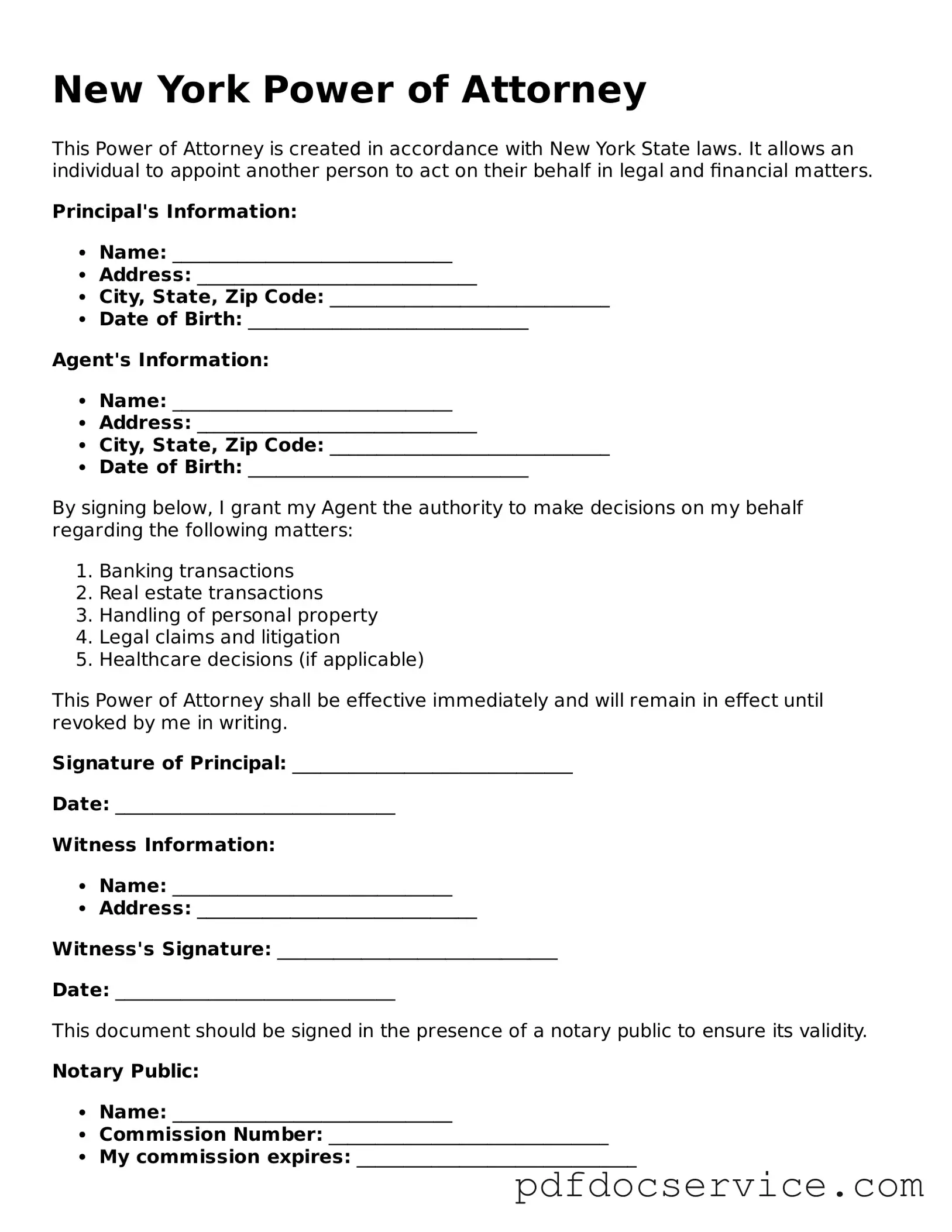Printable Power of Attorney Template for New York
The New York Power of Attorney form is a legal document that allows one person to grant another the authority to act on their behalf in financial or legal matters. This powerful tool ensures that your wishes are honored, even if you become unable to manage your affairs. Understanding how to properly use this form can provide peace of mind and protect your interests.
Open Power of Attorney Editor

Printable Power of Attorney Template for New York
Open Power of Attorney Editor

Open Power of Attorney Editor
or
Get Power of Attorney PDF
Finish the form now and be done
Finish Power of Attorney online using simple edit, save, and download steps.